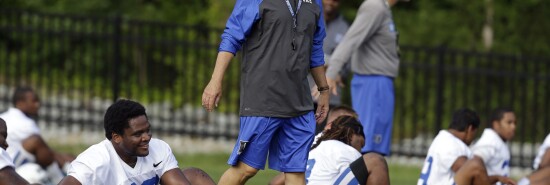
Honor the pirate — give college athletes more time to graduate
Tom Miller
Video Embed
College football fans were treated to a thrilling end to this year’s college football season, including the exhilarating slugging matches in the semi-finals and Georgia’s decisive win in the championship. But after the hubbub dies down, we cannot ignore the growing threats facing college football: name, image, and likeness payments; and the transfer portal.
The two issues are exacerbating an old problem for players — a post-football future without a marketable college degree. The pursuit of NIL money and the greener pastures of a new school can hinder student-athletes from pursuing a valuable education.
CHICKEN WINGS AND AVOCADOS DROP IN PRICE AHEAD OF THE SUPER BOWL
Here at Mississippi State, where I teach, we are still grieving the sudden death of our utterly unique and iconic football coach, Mike Leach, fondly known nationwide as “The Pirate.” We cannot believe that he is gone. He was funny, gruff but approachable, and had a brilliant football mind. Coach Leach was certainly willing to say the quiet part out loud.
In 2021, Coach Leach publicly opined on the consequences of opening the dual floodgates of Name, Image, and Likeness payments and the Free Transfer Rule for college football. Leach held nothing back, saying that “I just don’t want a bidding war that will definitely hurt football,” and that college football should try to encourage players “to graduate and not [make] it so enticing to transfer.”
Leach accurately predicted the current bidding war and chaotic use of the transfer portal. The end of the 2022 season unleashed a flood of transfers. ESPN reports that more than 1,600 college football players entered the non-public portal database since it opened on December 5, 2022.
The combined effects of the transfer portal and money paid to players through NIL have even distressed the “Portal King” himself, Ole Miss Coach Lane Kiffin. Kiffin commented, “You legalized cheating, so get ready for the people that have the most money to get the best players.”
Deion Sanders, Coach Prime, has also said the quiet part out loud. He told his new Colorado team that he was “bringing his own luggage.” That is, Coach Prime will take full advantage of the opportunity to pluck players from the transfer portal and likely encourage some of Colorado’s current players to leave via the transfer portal. Who can blame him? There are no rules in this knife fight.
NIL, the transfer portal, and Big Money are not going away. It is now imperative to look at ways to encourage players to graduate with a meaningful degree.
I’ve been clamoring for one idea to help college football players overcome poor preparation for college and earn meaningful, lifelong income-producing degrees. My idea is simple: give college athletes 10 years to finish their degree rather than the current four plus a redshirt. The marginal cost to the college is minimal — the athletes would pay room and board in the extended years — and the result could be life-changing for many players. This additional length of time allows for many more paths toward graduation.
As a finance professor, I can testify that mastering rigorous course material requires many hours of study. By giving athletes 10 years to complete their degrees, those athletes can be students again. They can lay down a foundation to build a path to lifelong learning — which all starts with a degree.
The Power Five conferences should, at a minimum, ask the college football board to create a new committee expressly charged with finding new ways to encourage players to graduate with a marketable degree without using the portal. All players need and deserve a pathway to earn a quality college degree.
Mississippi State’s President, Mark Keenum, was the chair of the college football board of managers who recently approved a twelve-team playoff beginning in 2024. Referring to this change, Keenum said simply, “It’s time.” In his moving tribute at the Memorial Service for Coach Leach, Dr. Keenum said that Coach Leach “cared for his players deeply and that “his mind was always working … always interested in figuring out new ways of doing things and making improvements.”
CLICK HERE TO READ MORE FROM THE WASHINGTON EXAMINER
At Coach Leach’s Memorial Service, Gardner Minshew said that Coach Leach “changed what I thought was possible for myself. It’s time to help all players change what they think is possible for themselves. Let’s generate, explore, and implement ideas to help college football players graduate with meaningful college degrees. A solid solution would honor the memory of Coach Leach.
Tom Miller is a professor of finance at Mississippi State University.
